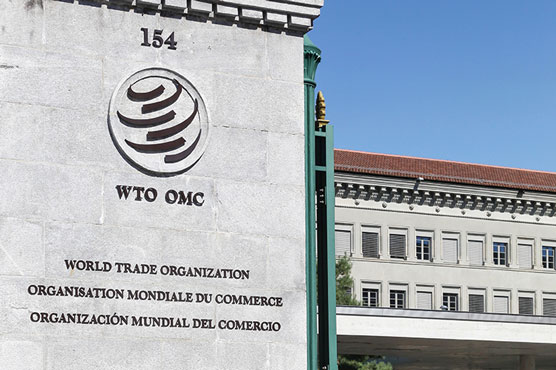How WTO chooses new chief

How WTO chooses new chief
GENEVA (AFP) - Roberto Azevedo’s surprise announcement last month that he will step down a year early has given the World Trade Organization three months to find a new boss, while the coronavirus crisis rages on.
As the month-long window for candidacy proposals opened on Monday to find a new WTO director-general before Azevedo leaves on August 31, here is an overview of the procedure ahead:
The in-tray
In the midst of a global economic downturn sparked by the COVID-19 pandemic, whoever takes the helm of the WTO will have their work cut out.
Ahead lie arduous preparations for a 2021 ministerial conference -- the topmost decision-making body of the WTO, which usually meets every two years.
The new chief will also need to kick-start trade negotiations that have laid all but dormant for decades, deal with demands for far-reaching reform and also find a strategy to handle increasing attacks from the United States.
Washington, which has threatened to withdraw from the global trade body "if we have to", is in particular demanding a review of the WTO’s legal arm, and a reassessment of China’s status as a developing country, which gives Beijing certain advantages on the world trade stage.
Campaign
Candidates who are not frightened off by the towering tasks ahead can apply for the post from Monday until July 8.
Once that period ends, candidates will be invited to meet the 164 WTO members.
This normally takes up the first three months of a nine-month process. However, this time, the entire campaign will be over in three months, with the new director-general due to take over on September 1.
If the post cannot be filled in time, one of the deputy director-generals will step in as the acting chief.
The process is not an election but a consensual mechanism that works by elimination, with voting used only as a measure of last resort.
Elimination
The chair of the WTO’s General Council -- David Walker of New Zealand -- oversees the process, aided by the chairs of the Dispute Settlement Body and the Trade Policy Review Body, who act as facilitators.
As head of this "troika", Walker will meet with representatives from the member states to determine their preferences and work out which candidate might have the best chance of securing consensus support.
There is no geographic rotation principle, but the rules state that in the final selection, member states will be asked to take into account the breadth of the WTO’s membership, and ensure it is reflected in successive appointments to the post.
After each consultation phase, the troika overseeing the process gradually eliminates the candidates with the least support.

